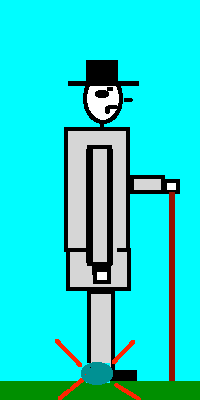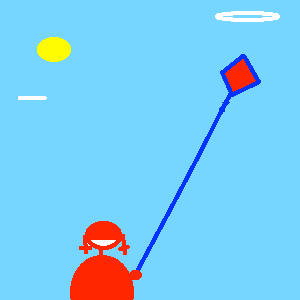Kalendar. An account of time.
Let this pernicious hour
Stand as accursed in the kalendar. Shakespeare's Macbeth.
***
to Keelhale. To punish in the seamens way, by dragging the criminal under water on one side of the ship and up again on the other.
***
Ken. View; reach of sight.
Lo! within a ken, our army lies. Shakesp. Henry IV.
***
Kercheift. Dressed; hooded.
The evening comes
Kercheift in a comely cloud,
While racking winds are piping loud. Milton.
***
Kermes. Kermes is a roundish body, of the bigness of a pea, and of a brownish red colour, covered when most perfect with a purplish grey dust. It contains a multitude of little distinct granules, soft, and when crushed yield a scarlet juice.
It is found adhering to a kind of holm oak, and till lately was generally understood to be a vegetable excrescence; but we now know it to be the extended body of an animal parent, filled with a numerous offspring, which are the little red granules.
***
Kern. Irish foot soldier; an Irish boor.
Out of the fry of these rake-hell horseboys, growing up in knavery and villainy, are their kearn supplied. Spenser.
***
Kibe. An ulcerated chilblain; a chap in the heel caused by the cold.
***
Kick. A blow with the foot.
What, are you dumb? Quick, with your answer, quick, before my foot salutes you with a kick. Dryden.
***
Kine. Plural from cow.
A field I went, amid' the morning dew,
To milk my kine. Gay.
***
Kite.
1. A bird of prey that infests the farms, and steals the chickens.
2. A name of reproach denoting rapacity.
Detested kite! thou liest. Shakes. King Lear.
3. A fictitious bird made of paper.
***
Knapsack. The bag which a soldier carries on his back; a bag of provisions.
If you are for a merry jaunt, I'll try for once who can foot it farthest: there are hedges in Summer, and barns in Winter to be found: I with my knapsack, and you with your bottle at your back: we'll leave honour to madmen, and riches to knaves, and travel 'till we come to the ridge of the world. Dryden's Spanish Fryar.
***
To knock. To affect or change in any respect by blows.
How do you mean removing him?
— Why, by making him incapable of Othello's place;
knocking out his brains. Shakespeare's Othello.
***
To know. Not to be ignorant.
Not to know of things remote, but know
That which before us lies in daily life,
Is the prime wisdom. Milton.
***
To Knubble. To beat
***
Knuff. A lout.
The Country knuffs, Hob, Dick, and Hick.
With clubs and clouted shoon,
Shall fill up Dussendale
With slaughtered bodies soon. Hayward.




















No comments:
Post a Comment